1. management
1.1. life style adjusments
1.1.1. avoid triggers
1.1.2. execrsise
1.1.2.1. YOGA
1.1.2.2. MUSCLE RALAXING ONES
1.1.3. dairy chart
1.1.4. STRESS REDUCTION
1.1.5. sleep well
1.1.6. surgery for corrigator muscle
1.1.7. diet
1.1.7.1. alcohlo
1.1.7.2. pickled food
1.1.7.3. aged cheese
1.1.8. chart for follow up
1.1.8.1. attacks frequency
1.2. pharmacological
1.2.1. acute
1.2.1.1. migrane NON-specific
1.2.1.1.1. NSAID
1.2.1.2. migrane specific
1.2.1.2.1. triptan
1.2.1.2.2. ergot
1.3. prophylaxis
1.3.1. long term
1.3.2. with recurrrence of attacks go back to abortive
1.3.3. depent on course and co-morbidity
1.3.4. anti-emetics
1.3.5. beta-blocker
1.4. status epielipticus
1.4.1. dexamethazone
2. STEP5
2.1. LEARNING OBJECTIVES
2.1.1. to know about migrane
2.1.1.1. difinition
2.1.1.2. pathophysiology
2.1.1.3. syptoms
2.1.1.4. work up
2.1.1.5. types
2.1.2. to know about brain tumors
2.1.2.1. main types in adults with definition
2.1.2.2. symptoms
3. step6
3.1. reporting
3.1.1. criteria
3.1.1.1. unilateral
3.1.1.2. moderate to severe
3.1.1.3. throbbing
3.1.1.4. wrosre with activity
3.1.2. types
3.1.2.1. with aura
3.1.2.2. without aura
3.1.2.3. chronic
3.1.3. criteria 2
3.1.3.1. aura
3.1.3.1.1. more than 5 min- 60 min
3.1.4. pathophysiology
3.1.4.1. CSD
3.1.4.1.1. activate trigeminovascular system
3.1.5. symptoms and signs
3.1.5.1. red flags
3.1.5.2. motor waekness
3.1.5.2.1. fully revresible
3.1.6. brain tumors
3.1.6.1. glial origin
3.1.6.1.1. astrocytoma
3.1.6.1.2. oligodendroglioma
3.1.6.1.3. meningioma
3.1.6.2. neoronal origin
3.1.6.2.1. SCWANOMA
4. step7
4.1. inquiry plan
4.1.1. history
4.1.1.1. present
4.1.1.1.1. 2 w three episode
4.1.1.2. past
4.1.1.2.1. hx since teenage
4.1.1.2.2. stress trigger
4.1.1.2.3. free for past several years
4.1.1.2.4. aura always
4.1.1.2.5. zigzag in euther feilds 30 min
4.1.1.2.6. wake cured of headache
4.1.1.2.7. ergot relive it
4.1.1.2.8. no correlation with mestruation
4.1.1.2.9. ta
4.1.1.3. medication
4.1.1.3.1. OCT
4.1.1.4. FAMILY
4.1.1.4.1. positive foir her mom
4.1.1.5. social
4.1.1.5.1. live with hasband and bro
4.1.1.5.2. 2 m of stress (manager)
4.1.1.5.3. missed classes
4.1.1.5.4. comprehention problems
4.1.2. examination
4.1.2.1. vitals
4.1.2.2. nurologic
4.1.2.2.1. visual veild aquity
4.1.2.2.2. rest is normal
4.1.3. investigation
4.1.3.1. BLOOD WORK
4.1.3.1.1. NORMAL
4.1.3.2. cxr
4.1.3.2.1. NORMAL
4.1.3.3. MRI
4.1.3.3.1. normal
5. step8
5.1. dignostic discioun
5.1.1. hemiplegic miagraine
5.2. learning objectives
5.2.1. managemnt of hemiplegic miagraine
6. step9
6.1. review
7. resorces
7.1. harrison
7.2. lectures
7.3. experience (faris)
7.4. kumar
7.5. davidson
8. cues
8.1. female, 40 y
8.2. teacher of music
8.3. tingling and weakness in left arm, 2 w ago
8.4. headache
8.5. disorientation in place
8.6. zig-zag visual pattern
8.7. stress
8.8. difficulty in reading
9. STEP1
9.1. difficult words
9.1.1. VIOLION musical intrument
9.1.2. ziz-zag
9.1.3. unwinding: relieve
10. STEP2
10.1. PROBLEM FORMULATION
10.1.1. 40 y female teacher complaining of headache, tingling and weakness of left arm and hand since two weeks. accompanied by zig zag visual pattern. stress and and disorientation in place are also noticed.
11. STEP3
11.1. HYPOTHESIS GENERATION
11.1.1. the problem affect motor cortex progresively. (tumor in frontal or praiatal lobe)
11.1.2. memory problem
11.1.3. vision, motor, sensory auras (cortical hypovolemia followed by hypervolemia -- coical spreading depresion) related to accociated areas.
11.1.4. feamale are at higher isk.
11.1.5. stress and hormnal changes are risk factors for headche (migrane)
11.1.6. wneki caslikof ( mamilary body degenation) lead to amnesia.
11.1.7. for migrane u need 2|4 aura + ( photophoia and phonobia, nausea and vomiting)
11.1.8. stroke in evulution
11.1.9. migrane with auras that fulfill the criteria
11.1.10. atriovenous malfomation
11.1.11. multible sclerosis
12. STEP4
12.1. HYPOTHESIS ORGANIZATION
12.1.1. vascular
12.1.1.1. stroke in evolution
12.1.2. neurological
12.1.2.1. migrane
12.1.3. tumor
